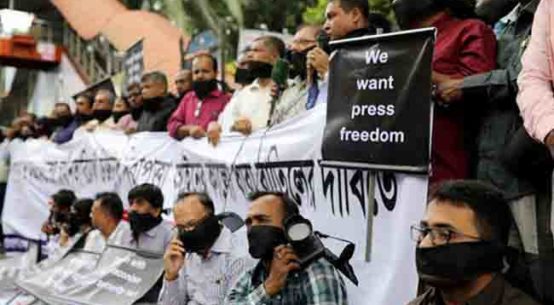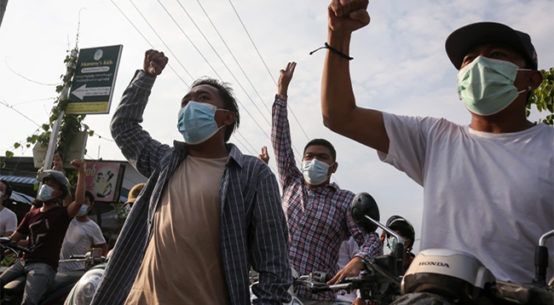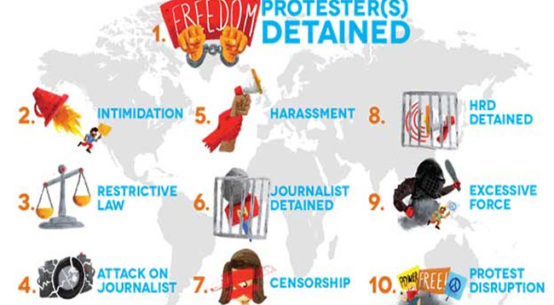
There is increasing concern over press freedom and civil liberties of media practitioners following hastened efforts to implement cyber security related laws by the 16-Southern African Development Community (SADC) member states.
The press is concerned that at the rate the various countries are seeking to enact the laws, raising fears the actions could stifle freedom of expression, access to information and media freedoms enjoyed by practitioners, despite being a strategic partner for socio-economic development.
Correspondence to the Chairperson of the Southern Africa Development Community, President Filipe J. Nyusi, also President of the Republic of Mozambique from the Media Institute of Southern Africa (MISA) calls for expeditious intervention.
The regional watchdog, formed in 1992, is concerned at the speed by countries to regulate the media, and if objective is attained, would ultimately alienate the “fourth estate” from reflecting as a mirror of society.
The eyebrows raised by MISA emanate from the resolutions made during the SADC Heads of State and Government Summit hosted in the Mozambique capital, Maputo in 2020. Leaders had unanimously resolved to implement contentious cyber security laws.
This was ignited by the fake news regulations which started with South Africa, and triggered similar laws in Botswana, Zambia, Eswatini and Namibia, among other countries. Ultimately, some media personnel have faced persecution in some member countries.
MISA is concerned, if allowed unilaterally, could allow Governments to snoop on the Internet without much attention and due regard to the enjoyment of fundamental human rights, particularly the protection of citizens’ right to privacy. The media is one of the victims too.
To justify the outcry, MISA cites among others, Zambia as one of the countries that has already enacted a cyber security law. Zimbabwe is expediting the enactment. Lesotho has gazetted the Communications (Subscriber Identity Module and Mobile Device Registration) Regulations of 2021.
Under the law, it is a requirement for everyone in that country using mobile phones to have their personal information stored with the Lesotho Communications Authority (LCA) and accessed by security agencies with ease, but without an owner’s consent.
Last February, the Citizen Lab, a Toronto based research organisation, conducted research on the use of spyware. It detected that there were seven African countries using the Circles spyware to snoop on citizens’ communications.
Zimbabwe, Zambia and Botswana, are among the seven African countries from SADC that were cited as using the Cycles spyware. The act is deemed a violation of both domestic laws and ACHPR frameworks that protect the right to privacy.
Last April, MISA claimed the Information and Communications Technology Authority (ICTA), of Mauritius, had proposed amendments to the ICT Act. The law is seemingly aimed at ‘regulating the use and addressing the abuse and misuse of social media in Mauritius’.
The Cybercrime and Data Protection Bill before Zimbabwe’s parliament seeks to establish a mass surveillance society through compromising data handling, storage and retrieval, among other issues.
In the majority of these proposed frameworks in Lesotho, Mauritius and Zimbabwe, they entrench surveillance and censorship. This prompted MISA to raise the red flag.
This, if ‘bulldozed’ by regional leaders, could leave the media out of the SADC regional development framework, Vision 2050. MISA seeks the regional body to censure its member countries and change their ‘appetite’ to stifle the media through uncouth practices.
“Your Excellency, it is our humble submission, that these laws fall far short of regional and international standards and instruments on human rights such as the African Union Convention on Cyber Security and Personal Data Protection (Malabo Convention), which sets the standards for cyber security and personal data protection laws as well as capacity building, knowledge exchanges and experience sharing among signatories.” A petition signed by Golden Maunganidze-the MISA Regional Governing Council Chairperson reads in part.
It urges SADC to ensure that the region’s cyber security regulation is informed by the revised principles of the ACHPR Declaration on Freedom of Expression and Access to Information which recognises the Internet as a fundamental right.
In cases where countries have developed repressive legislation and regulations against fake news following the COVID-19 outbreak, MISA requests for a roadmap of when these laws will be repealed.
SADC member states could emulate and take a cue from Namibia and Ghana which have given media latitude to operate freely, notwithstanding other challenges.
The countries are ranked number one and two on the continent; 24 and 30 respectively on the global scale by the Reporters without Borders (RSF) 2021 World Press Freedom Index.
MISA remains open to constructive engagement with the Governments of Southern Africa, through the SADC Secretariat. It is more than willing to share and offer its expertise on these issues that require immediate attention.
Currently, MISA has fully operational Chapters in eight (8) SADC countries: Botswana, Lesotho, Malawi, Eswatini, Mozambique, Tanzania, Zambia and Zimbabwe. The other Chapters in Angola and South Africa operate at reduced levels of activity.
MISA has since positioned itself as the primary advocate for media freedom and freedom of expression in Southern Africa. Each Chapter enjoys a national membership made up of media practitioners and media institutions.
Last April, the civil society groups in Zambia had petitioned the Lusaka High Court over the enactment of the cybercrime law. In their affidavit, they accused the government of violating the Constitution through the enactment of the Cyber Security and Cyber Crimes Act.
They further contended that the new law contains provisions that threaten the right to protection of the law and the right to freedom of expression, constitutionally guaranteed rights.
The civil right campaigners had asked the court to declare the Cyber Security and Cyber Crimes Act unconstitutional.




